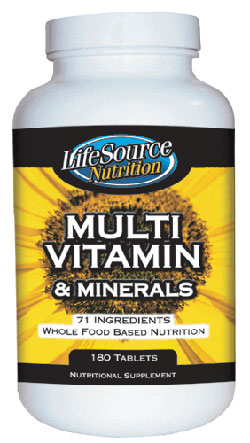|
Seven Quick Tips To Speed Up Your Metabolism and Burn Fat Faster
 Your metabolism or metabolic rate can determine exactly how quickly you gain or lose fat. Here are some quick tips you can put to use immediately to help crank up your metabolism and increase your fat burning.
Your metabolism or metabolic rate can determine exactly how quickly you gain or lose fat. Here are some quick tips you can put to use immediately to help crank up your metabolism and increase your fat burning.
1. Eat Breakfast
It's no myth that breakfast is the most important meal of the day. If you skip breakfast thinking you are saving calories or time, consider this...
Your body has been in a fasting state for 8 hours or more. When you wake up and don't give it any food, its natural reaction is self-defense. It thinks "famine" and automatically slows your metabolism to a crawl to conserve calories. Not only does everything you eat for the rest of the day have a far greater chance of being stored as fat, your chances of burning any fat off that day are low.
And here's the whammy... you're going to get really hungry later and will probably want to eat something that's not so good for you. With your now-slower metabolism (because you skipped breakfast), you're going to store a lot more of that "not-so-great" meal than usual.
2. Eat Frequently
Besides skipping breakfast, the next biggest metabolism-killer is long waits between meals. Every time you eat something, your metabolism ramps up to process the food. The more frequently you eat, the more frequently your metabolism will get a boost.
The real key, however, is to be sure you're eating smaller meals (eating 5 big meals instead of 3 big meals isn't good for losing fat!). Try to eat 5 or more times per day, even if it's just healthy snacks between meals.
 3. Exercise With Intensity
3. Exercise With Intensity
Your metabolic rate is directly related to the intensity of the exercise you perform. Walking will burn calories while you're doing it and give your metabolism a small boost for a little while after but it doesn't compare to high-intensity interval training. That type of training can boost your metabolism for a full 24 hours or more after.
Even if you can't handle high-intensity training, you can always find ways to make the easier exercises such as walking more intense, e.g. walk faster, walk up hills, wear a weighted back-pack, etc.
4. Train With Weights
Weight training builds muscle and muscle is a huge factor in determining your metabolic rate. Muscle tissue is very metabolically active. Your body burns a lot of calories just to maintain it.
Weight training gives your metabolism a triple-shot. Not only do you burn calories during the exercise, you also increase your metabolic rate long after the exercise (provided the training you are doing is intense). Add to that the extra muscle you build from the training and you can see how effective weights can be for boosting your metabolism.
5. Eat More Protein
Of the three major macronutrients (protein, carbohydrates and fats), protein requires the most energy to digest. Protein is also less likely to be stored as fat because of this. Protein will also help you to build up your muscle.
I don't recommend that you overload on protein, however, focusing on getting plenty of good-quality protein from a variety of sources (e.g. lean meats, chicken, fish, eggs, soy, etc.) can help keep your metabolic rate high.
 6. Take Your Vitamins
6. Take Your Vitamins
Your metabolic rate basically boils down to chemical reactions in your body. Vitamins and minerals (and water) are important parts of these chemical reactions. If you don't have enough of these components available for your body to use when it needs them, your body will have to limit itself to what you've got.
Think of your metabolism as a car assembly line. You can't build a complete car until you have all the parts available. If, for example, you only have enough doors available to build 100 cars but you have 200 doorless cars on the line, you're missing out on a lot of potential production.
By taking a multivitamin on a regular basis, you will not only support your metabolism but your health as well.
7. Reduce Your Fat Intake
Fatty foods take longer for your body to digest and they leave you feeling fuller longer. While not being hungry is certainly fine when trying to lose fat, eating meals that encourage you to wait longer periods between eating can slow your metabolism.
This goes back to the point about eating frequently. If you eat fatty foods for breakfast, you may not want to anything again until lunch, which could be 5 or more hours away. Ideally, you should eat approximately every 3 hours.
If you're looking to give your metabolism a boost, give these tips a try. A faster metabolic rate can help you tremendously with fat loss.

More Articles by Author Nick Nilsson
Return To Weight Lifting Articles Archive
|